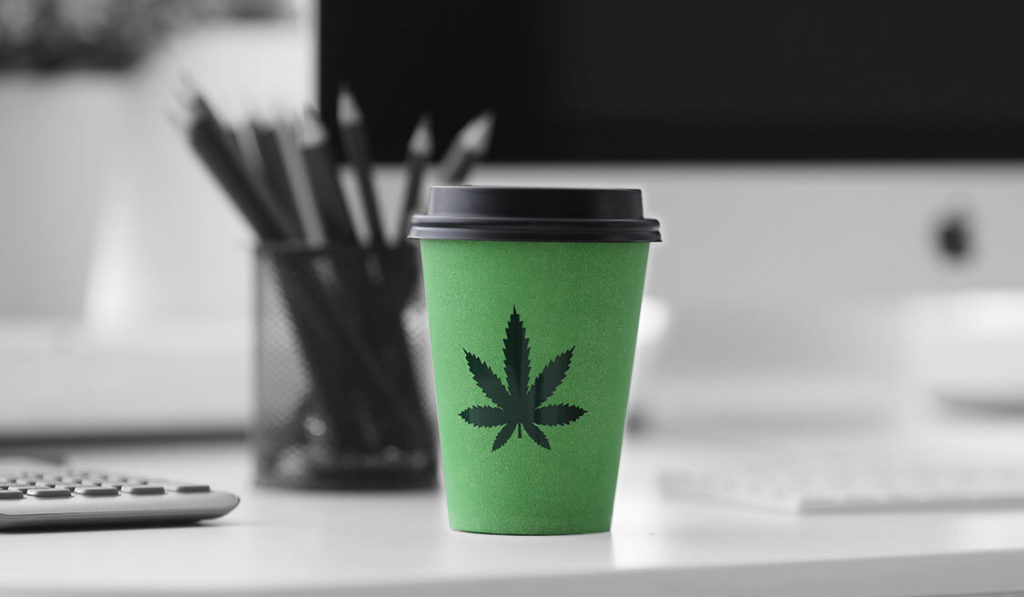In late March, Virginia Governor Ralph Northam signed HB 1862 into law, which provides some employment protections for state-registered medical cannabis patients. At the time, Executive Director of Virginia NORML Jenn Michelle Pedini described the new legislation as “an important initial step.” What rights does the law impart to employees and employers? The Outlaw Report takes a closer look at the legislation’s strengths and where there is potential room for progress, as well as how these issues are playing out across the country.
A core clause of the bill is that it, “Prohibits an employer from discharging, disciplining or discriminating against an employee for such employee’s lawful use of cannabis oil pursuant to a valid written certification issued by a practitioner for the treatment or to eliminate the symptoms of the employee’s diagnosed condition or disease.” It does allow employers to prohibit the possession of medical cannabis during work hours. And, employers are still empowered to take “adverse employment action for any work impairment caused by the use of cannabis oil.”
The Outlaw Report asked Executive Director of Virginia NORML Jenn Michelle Pedini how an employer would determine such an impairment, as well as whether drug testing based on employer suspicion was problematic in such cases, given THC’s propensity to stay in the body for extended periods.
“It’s up to the employer to demonstrate impairment,” they said. “The presence of marijuana metabolites can only demonstrate consumption, not impairment.”
HB 1862 contains some exceptions to the employee protections for federal contractors and the defense sector of Virginia. Employers will not be required “to commit any act that would cause [them] to be in violation of federal law or that would result in the loss of a federal contract or federal funding.” Defense industrial base sector employers do not have to hire or retain anyone who tests positive for THC above certain limits; in excess of 50 ng/ml for a urine test or 10 pg/mg for a hair test.
Virginia’s first medical cannabis facility, Dharma Pharmaceuticals in Bristol, opened in October 2020, and the Commonwealth now has four functioning dispensaries. There are currently about 10,000 registered cannabis patients in Virginia. Medicinal cannabis use is legal in 36 states, D.C. and four U.S. territories, though Mississippi’s measure is currently being challenged. As of late 2020, there were more than 4 million registered patients throughout the U.S. But in 2020, before Virginia passed its medical cannabis employment protections, only 12 other states and D.C. provided any degree of employee safeguards for off-duty, prescribed use of medicinal cannabis.
Most states, including Virginia, do not require employers to provide any workplace accommodations for medical cannabis patients. While medical cannabis is prescribed for multiple conditions covered by the Americans with Disabilities Act (ADA), several courts have ruled that the ADA does not protect medical cannabis users, in large part due to the drug’s continued federal prohibition, as the National Law Review explains.
As The Outlaw Report recently covered, there is growing momentum for change at the federal level. Fresh on the heels of New York legalizing recreational cannabis, Senate Majority Leader Chuck Schumer (D-NY) announced he was working on new federal cannabis reform legislation. It’s unclear whether President Joe Biden would veto a bill to legalize cannabis if it made it to his desk.
In a statement on Virginia’s medical cannabis patient employee protections, Pedini said the legislature should now “work swiftly to eliminate suspicionless marijuana testing altogether in order to better align with both state law and with public opinion.”
Some states and municipalities, including Virginia’s capital of Richmond, have passed resolutions prohibiting suspicionless drug testing like cannabis job screenings, though, in some cases, the resolutions only apply for public-sector employees and/or those not in “safety-sensitive” positions. NORML’s Deputy Director Paul Armentano said, “Suspicionless marijuana testing in the workplace is a holdover from the zeitgeist of the 1980s war on drugs. But times have changed; attitudes have changed, and in many places, the marijuana laws have changed. It is time for workplace policies to adapt to this new reality.”
NORML has collected a number of studies that find that off-duty cannabis use is not positively associated with higher rates of occupational accidents or injuries.
The Virginia Governor also recently signed a bill into law that allows medical flower or botanical cannabis to be sold in the Commonwealth. While the new medical cannabis employee protections only reference cannabis oil, Pedini says the language will be updated, and that, “HB 1862 was drafted based on existing Code.”
In other Virginia Cannabis news, recreational adult cannabis will become legal this summer, as the VA legislature recently approved Governor Ralph Northam’s amendments to the legalization plan, which include a July 1 end to prohibition. According to VA NORML, Northam has approved 41 cannabis bills in total during his term.

